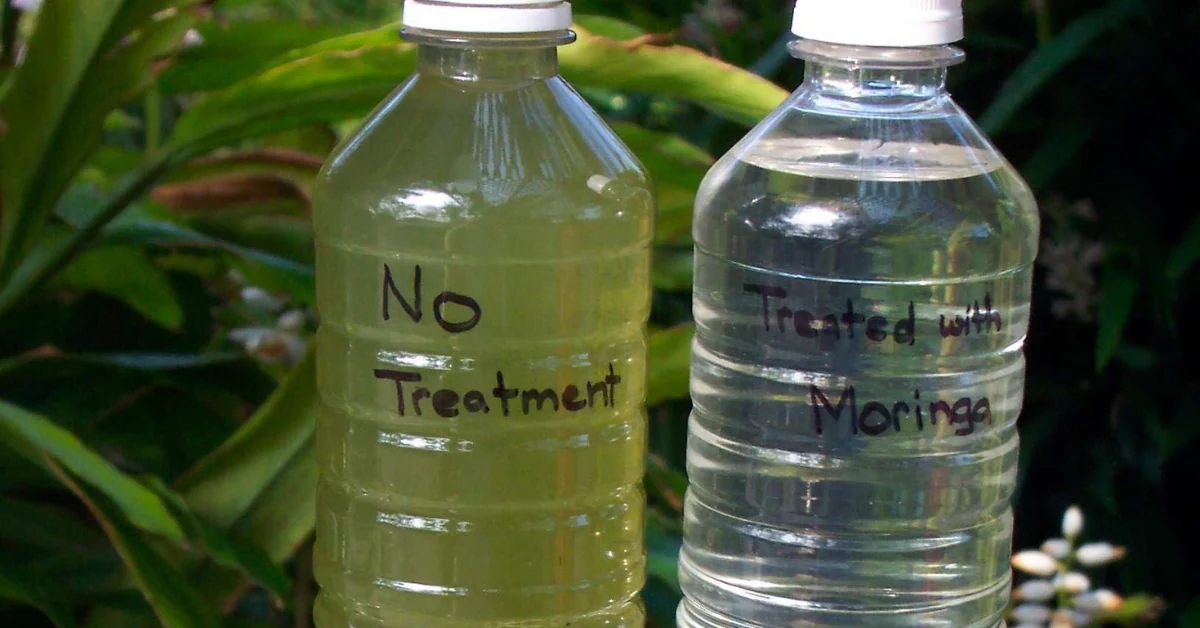Moringa’s Breakthrough in Water Purification: A Sustainable Solution
Moringa’s Breakthrough in Water Purification: A Sustainable Solution
Table of Contents
In regions across the globe, access to clean drinking water remains a critical challenge. Moringa Oleifera, a plant native to parts of Africa and Asia, is stepping up as an unlikely hero in the fight for clean water. Known primarily for its nutritional benefits, Moringa’s seeds possess unique properties that allow them to purify water, making them a valuable resource in sustainable water treatment efforts.
The Science Behind Moringa’s Water Purification
Moringa seeds contain proteins that can bind to impurities and bacteria in water, causing them to aggregate and settle at the bottom of the water container. This process significantly clarifies water, making it safer for drinking. The active component of Moringa seeds, known as Moringa Oleifera Cationic Protein (MOCP), acts as a natural coagulant and antimicrobial agent.
Key Mechanisms
- Coagulation: Moringa seed powder disperses into the water, attracting sediments and pathogens, which coalesce into larger particles that are easier to filter out.
- Antimicrobial Properties: The seeds have been proven to reduce the presence of harmful bacteria such as E. coli, enhancing the bacteriological quality of the water.
Global Case Studies
In several developing countries, Moringa seeds have been successfully used to purify water. For instance:
- India and Sub-Saharan Africa: Communities use crushed Moringa seeds to treat river and well water, which is then used for drinking and cooking.
- Impact Studies: Research shows a significant reduction in waterborne diseases in communities adopting Moringa for water purification.
Comparative Analysis
When compared to traditional water purification methods like boiling or chemical treatments, Moringa seeds offer a cost-effective, energy-saving, and environmentally friendly alternative.
- Advantages: Moringa is readily available in many tropical and subtropical regions, reducing reliance on imported chemicals.
- Challenges: Variability in seed quality can affect purification effectiveness, necessitating standardized processing methods.
Practical Application and Accessibility
To use Moringa seeds for water purification:
- Prepare the Seeds: Dry and grind Moringa seeds into a fine powder.
- Application: Mix the powder into the water and stir rapidly for 30 seconds, then slowly for 5 minutes.
- Settling: Allow the water to sit for at least an hour for the sediments to settle at the bottom.
Making Moringa More Accessible
Efforts are ongoing to streamline the use of Moringa in water purification by developing simple extraction kits that can be used at the household level.
The Environmental and Economic Impact
Using Moringa not only purifies water but also contributes to the local economy by creating markets for Moringa products. The environmental footprint is minimal, as Moringa cultivation requires little water and no harsh chemicals.
Conclusion
Moringa’s role in water purification is a testament to the incredible versatility of this plant. As we continue to face global challenges in water scarcity and quality, natural solutions like Moringa provide a beacon of hope. With continued research and development, Moringa could play a pivotal role in providing clean drinking water to those who need it most.
FAQs About Moringa Water Purification
- How effective is Moringa in purifying water? Moringa can effectively reduce turbidity and bacterial content, making water safer for consumption.
- What are the limitations of using Moringa in water treatment? While effective, it does not remove dissolved toxins or heavy metals, which might still require conventional treatments.
- Can Moringa seeds be reused for water purification? Once used, Moringa seeds cannot be reused in purification processes.
- Where can I find Moringa seeds? They are available in regions where the Moringa tree is cultivated or can be ordered online from specialty suppliers.






